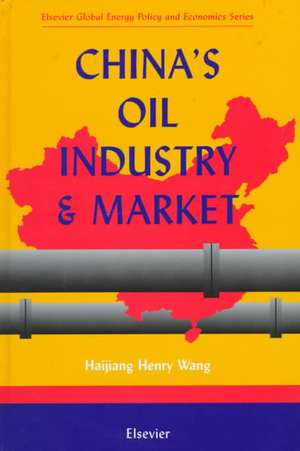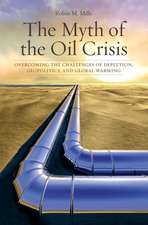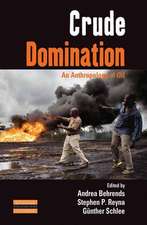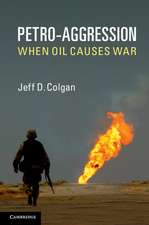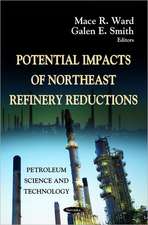China's Oil Industry and Market: Elsevier Global Energy Policy and Economics Series
Autor H.H. Wangen Limba Engleză Hardback – 8 aug 1999
The author analyzes the Chinese oil market and the rising pressure on Beijing to reform policies which constrain China's ability to meet soaring demand and to pay for crucial imports at a time of growing political and economic uncertainties. Dr Wang acknowledges the importance of China meeting its growing domestic oil demand, if at all possible, through national production. The sheer weight of China's population, and its burgeoning requirements as industrialization spreads into most regions, dwarfs the needs of others and places unprecedented strain on international oil trades.
The author stresses the fact that the outcome is hard to define, yet the time required to tackle the nation's energy needs is not limitless. Moreover, he reminds the reader of the perennial difficulty in meeting widely disparate economic and energy needs in different regions of the vast country.
Preț: 690.25 lei
Preț vechi: 945.55 lei
-27% Nou
Puncte Express: 1035
Preț estimativ în valută:
132.10€ • 137.40$ • 109.05£
132.10€ • 137.40$ • 109.05£
Carte tipărită la comandă
Livrare economică 15-29 aprilie
Preluare comenzi: 021 569.72.76
Specificații
ISBN-13: 9780080430058
ISBN-10: 0080430058
Pagini: 427
Ilustrații: 1
Dimensiuni: 156 x 234 x 24 mm
Greutate: 0.77 kg
Editura: ELSEVIER SCIENCE
Seria Elsevier Global Energy Policy and Economics Series
ISBN-10: 0080430058
Pagini: 427
Ilustrații: 1
Dimensiuni: 156 x 234 x 24 mm
Greutate: 0.77 kg
Editura: ELSEVIER SCIENCE
Seria Elsevier Global Energy Policy and Economics Series
Cuprins
Chapter headings and subheadings: Preface. Economic and Political Outlook. Economic performance: overview and outlook. Political outlook. Oil Policy and its Impact. Oil industry reforms. Oil pricing. Oil distribution policy. Oil import policy. Crude Oil Production. Crude production levels, onshore and offshore. Tarim Basin exploration and development. Projected crude production. Refining Industry: Policy and Industry Prospects. Crude distillation and conversion capacity. Overview of refining capacity plans and assessment of actual changes. Refinery yields and output. Oil transportation. Refining policy. Petroleum Product Demand. Oil in total energy consumption. Gasoline. Diesel oil. Fuel oil. Other refined products. Total petroleum products. Oil Quality and its Environmental Impact. Crude quality. Environmental impact. Supply/Demand Balance: Implications for Trade. Crude oil balance. Petroleum product balance. Can China afford import expenses? Regional oil balance. China's impact on the Asian Market. Impact of crude imports on regional trade flows and crude prices. Impact of product fundamentals on regional supply/demand balances. Impact of product crude spreads. Conclusion. Appendices. Index.
Recenzii
from:P.Tempest, Director General
“This text is both an authoritative and comprehensive work of reference on past developments and also a well-judged assessment of the present political, economic and fiscal climate concerning China's oil policy today.
It is the best assessment I have seen ......... --World Petroleum Council
from:Haijiang Henry Wang
“This authoritative book presents an overall picture of current Chinese politics, energy policy, oil industry regulation, price regulation, important licenses and quotas, the production distribution system, infrastructure and the impact of economic reform on the oil business.
The author stresses the fact that the outcome is hard to define, yet the time required to tackle the nation's energy needs is not limitless. --Asian Energy News
“This text is both an authoritative and comprehensive work of reference on past developments and also a well-judged assessment of the present political, economic and fiscal climate concerning China's oil policy today.
It is the best assessment I have seen ......... --World Petroleum Council
from:Haijiang Henry Wang
“This authoritative book presents an overall picture of current Chinese politics, energy policy, oil industry regulation, price regulation, important licenses and quotas, the production distribution system, infrastructure and the impact of economic reform on the oil business.
The author stresses the fact that the outcome is hard to define, yet the time required to tackle the nation's energy needs is not limitless. --Asian Energy News
